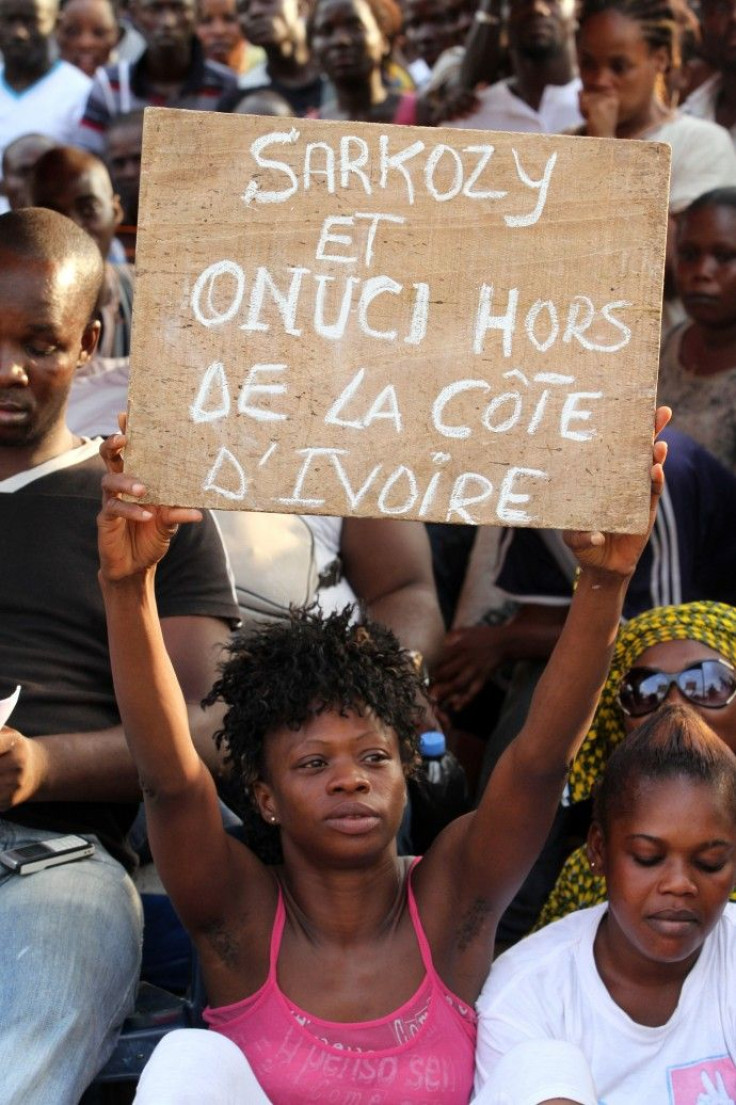Ivory Coast's Gbagbo softens stand, invites Opposition for dialogue

Cote d'Ivoire's disputed president, Laurent Gbagbo, has announced that he would be willing to engage with the rival faction of Alassane Ouattara. In a televised address, he announced that the international community had declared a war on the African nation. The incumbent president also called on the Opposition to leave Abidjan's Golf Hotel and return to their homes.
I don't want another war, I don't want any more Ivorian blood to be spilled, said in the speech.
I am therefore ready to welcome a committee ... headed by the African Union, involving ECOWAS, the United Nations, United States, the European Union, Russia and China, which will have permission to analyze objectively the facts of the electoral process ... to solve this crisis, he added.
The president also maintained that no one forced the Opposition to take refuge in the Golf hotel and no one has prevented them from coming out. Ouattara and his aides have sought refuge in the hotel since the general election held last month. The Opposition leader is widely recognized as the winner of the presidential run-off.
International pressure has been mounting on Gbagbo with several western countries and the United Nations demanding that he should concede defeat and transfer his powers to Ouattara and his men. Ouattara, who was educated in the United States and served as an economist for the International Monetary Fund in Washington is favored over Gbagbo who ruled the country since the presidential polls in 2000. The World Bank has already frozen financing for the Ivory Coast's government.
Meanwhile, the United Nations announced that more than 6,200 have fled Cote d'Ivoire into two neighboring Liberia and Guinea following the post-election violence. French President Nicolas Sarkozy also ordered French citizens to leave the country immediately.
Violence is reportedly escalating in the region, as Gbagbo's aides have called upon their followers to prepare for a battle and opposing Ouattara faction urged civil revolt. Over 9,000 UN peacekeepers and 900 French troops are stationed in the country following a civil war over the past decade. The opposition accused Gbagbo of recruiting rebel fighters from Liberia and Angola to kill their supporters in the post-election violence. While Ivory Coast's government insisted that only 20 people were killed in the violence, UN put the numbers at 50 and the opposition camp claims a toll of 200.
The Independent Electoral Commission (IEC) initially declared Ouattara to have won the run-off by 54.1 per cent of votes to 45.9 per cent after the last month's general elections. The United Nations, U.S. along with several other European countries extended their congratulations to Ouattara. But hours later, the country's Constitutional Council named Gbagbo as winner overturning the earlier results. The president of the council, Paul Yao N'Dre, stated that after excluding votes in seven regions that were marred by irregularities, Gbagbo won the polls by 51 per cent to Ouattara's 48 per cent.
© Copyright IBTimes 2024. All rights reserved.











